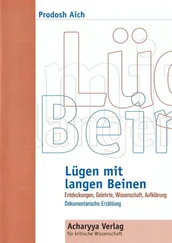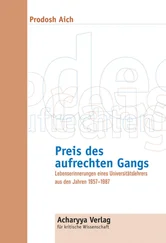We keep this in our mind. After reading the lecture delivered by Max Mülleron languages, on Sanskrit, on etymology of words, on ancient gods, on Aryans, and what not, we reach the page 152 and read:
“He (Professor Gottfried Hermann) by no means discouraged me, nay, he was sorry to lose me, when in my third year I went to Berlin. He showed me great kindness on several occasions, and when the time came to take my degree of M.A. and Ph.D., he, as Dean of the faculty, invited me to return to Leipzig, offering me an exhibition to cover the expenses of the Degree.”
At that time, it was a must to celebrate getting an academic degree. The customs in terms of dress and entertainments are fixed. It is quite expensive. These are documented in the annals of the German universities; Leipzig University included.
Georgina Max Müllerquoted in her book a letter written by Friedrich Maximilian Müllerto one of his friends who became a known writer in course of time. Theodor Fontane. It is being translated from German. We have not seen the original. We do not know who translated this letter (p. 19). We take it as it is. It is dated September 1843 only, i.e. much before the WS 1843/1884 begins:
“Dear Fontane,—I can well imagine that you have often cursed me not a little as I gave no sign of life for such a long time; but Morbus excusat hominejti, and I will add, Nisi homo excusat morbum I I hope you have carried on your Latin studies so far as to comprehend the deep meaning of these words; and if a human heart still beats in your breast, you must pity me, poor wretch, for having spent nearly the whole vacation in a nervous fever, so that I must stay almost the whole of next term here in Leipzig. It is ill-luck, you will agree. Well, one could almost despair, but where's the good of it? I have quietly unpacked my books and things again, and sit in Reichel's Garden, up three flights, up which I have to climb with many gasps. I am in Leipzig incognito, for I had already paid my farewell visits everywhere, and altogether feel no inclination for society.”
Friedrich Maximilian Müllerleaves Leipzig University when he is twenty. He has studied unsystematically different subjects for only two and half years. He does not even try to take an academic degree. He even does not care to take a testified University leaving certificate. We wonder how he could have explained to his mother that he leaves Leipzig University without trying to take a single academic degree. Or did he belie his mother all together?
In SS 1844, he takes admission at the Royal Frederick William University in Berlin, as a student in the Faculty of Theology. Yes, Theology. It is documented. As “ the student Friedrich Maximilian Müller ”. What does it mean?
We ascertain, Friedrich Maximilian Müllerdoes not acquire any qualification in any subject at the Leipzig University that could be assessed even as average achievement. He misused the scholarship of the Anhalt-Dessau Government for poor students. We are unable to relate his meagrely acquired knowledge to his deliberations of our first Chapter. In our search, we can leave Leipzig behind us. Our attention is focussed now at the Royal Frederick William University in Berlin. He is in search of “virgin soil” . We recall:
“I found little that could rouse my enthusiasm for Greek and Latin literature, and I always required a dose of that to make me work hard. Everything seemed to me to have been done, and there was no virgin soil left to the plough, no ruins on which to try one’s own spade.”
We recall also: “ I began to feel that I must know something special, something that no other philosopher knew, and that induced me to learn Sanskrit, Arabic and Persian. ”
Well. Apprehensively we raise, to begin with, the question whether there had been facilities to learn “Sanskrit, Arabic and Persian” in Europe in general and at Leipzig in particular. Then we raise the question whether Friedrich Maximilian Müllerdoes learn “Sanskrit, Arabic and Persian” to understand philosophical literatures in these languages at Leipzig University.
As regard to the Sanskrit language, he could not have learnt more than Hermann Brockhausknew. We leave these two questions unanswered. We leave them here as issues, as noted items, to think about. We shall get back to these questions later.
Presently we just fail to comprehend how modern scholars in Europe always assume and claim that they do learn and gain command over classical languages like Sanskrit, Arabic and Persian in a few months. Why do they fail to remember the years that they needed to learn their Vernacular, their Greek and their Latin? The question remains here again unanswered. We shall not deepen this aspect just here.
It would be beyond our competence to deal with Arabic and Persian. We simply focus on the Sanskrit language. Unless we know more about the language calledSanskrit, how it arrives in Europe, how and when it spreads in Germany and in Europe, we will not be able to assess and judge all those fantastic stories narrated by Max Müllerin particular and by “Indologists” and modern scholars in general. Moreover, we will not be able to judge and evaluate what Friedrich Maximilian Müllerhas factually learnt in general and what kind of Sanskrit language he has learnt in particular. We take a necessary aside after this Chapter: “ What does Friedrich Maximilian Müller learn at Leipzig University?”and look into what kind of Sanskrithe could have learnt so far.
LEARNING SANSKRIT IN GERMANY IN GENERAL AND AT LEIPZIG IN PARTICULAR
All students, bright or less bright need orientation in the beginning at universities identifying subjects of interest and identifying sympathetic teachers. The phase of orientation may take even two semesters. In his second semester, Friedrich Maximilian Müllercomes to know that Hermann Brockhaus, a new professor at Leipzig, offers Sanskrit Grammar for the very first time at Leipzig University. Before he decides upon his preferences, he attends Hermann Brockhausas well out of curiosity. Orient, Oriental literature and Oriental languages are progressively becoming attractive not only in Germany. With general “philology”, i.e. Greek and Latin languages, and with German literature he is more or less familiar.
In fact, Friedrich Maximilian Müllercould learn only that much of Sanskrit Grammar that Hermann Brockhausknew and could teach in three months. We did not check whether Hermann Brockhausever continued with his grammar course in the following semesters. We know for sure that Friedrich Maximilian Müller’s knowledge of Sanskrit Grammar was restricted to this three-months-course given by Hermann Brockhaus. How many grammar courses do we need learning our vernacular?
From his 3rd. Semester onwards Friedrich Maximilian Müllerattended, as dealt in details in the Chapter 4, the following five semester-courses offered by Hermann Brockhaus:
1 Nala Hermann Brockhaus
2 Probodha Chandrodaya Hermann Brockhaus
3 History of Indian Literature Hermann Brockhaus
4 Soma-Deva Hermann Brockhaus
5 Hitopadesa Hermann Brockhaus
It goes without saying that these courses were on narrated episodes and on secondary literature in the Sanskrit language. These courses were at best based on Hermann Brockhaus‘s three-months-grammar-course. And he lectured in the German language. After completing these courses Friedrich Maximilian Müllercomes to the conclusion that Hermann Brockhaus’s knowledge was exhausted. In addition, he felt, that was not enough for him. Therefore, he decides to go to Berlin and learn more of the Sanskrit language and more of Sanskrit literature. Franz Bopphappened then to be the topmost Sanskrit scholar, not only in Germany.
Читать дальше












